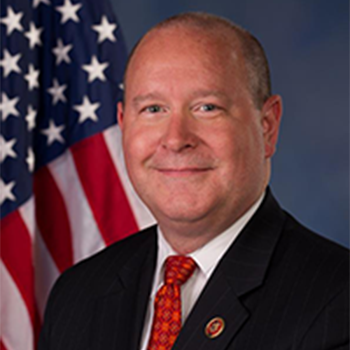
Violence in health care facilities is increasing at an alarming rate. While hospitals and health systems have protocols to detect and deter violence, the toll of workplace violence on hospital employees can be immense, ranging from physical and psychological harm to intimidation that prevents hospital staff from providing the best possible care to patients. Currently, there is no federal law that protects hospital employees from assault and intimidation. However, Congressman Larry Bucshon (R-Indiana) recently introduced the bipartisan Safety From Violence for Healthcare Employees (SAVE) Act.
The legislation, which is modeled after current protections for aircraft and airport workers – like flight crews and attendants – would provide legal penalties for individuals who knowingly and intentionally assault or intimidate hospital employees.
According to Rep. Bucshon, enhanced penalties for those who knowingly assault and intimidate hospital employees will deter further violence and ensure future offenders are given proper punishments for their crimes.

“As a practicing physician for more than 15 years, I know just how critical to patient care it is that we work to ensure that hospitals are safe environments,” said Rep. Bucshon. “Unfortunately, over the past few years, there have been increased incidences of violence taking place at our hospitals. These rising levels of violence negatively impact the ability of our nation’s physicians, nurses, and other health care professionals – who are currently experiencing record levels of stress and burnout – to provide quality care for their patients. The SAVE Act will put in place legal protections to help deter violence inside our nation’s hospitals and keep these vital institutions safe and secure for patients and our nation’s health care professionals.”
In Indiana, Reid Health has safety measures in place to protect those who are not only providing care but those who come to the hospital seeking treatment. Reid offers MOAB (Management of Aggressive Behavior) training to staff as interested. The training is required for emergency, behavioral, police, and critical care staff. In addition to education initiatives, Reid’s police officers provide escorts to and from vehicles for staff as needed.
Randy Kolentus, director and chief police officer of Reid’s police department, was recently named the national runner-up for the 2022 Healthcare Director of the Year award presented by a U.S. publication focused on public safety and security.

“Hospitals are supposed to be considered a safe place, exempt from violence,” Kolentus said. “The reality is, staff members are being injured by patients and visitors while doing their job. Fortunately for Reid, we have always had a very supportive administrative team, and it became evident early on that our security department needed additional officers to help keep our staff safe.”
Kolentus said the rise in addiction in the community prompted the Reid Police Department to look at increased protective measures such as adding firearms and ballistic protection to officers. Along with this added protection, Kolentus said, community partnerships have benefited the staff and the community at large.
“As the world is discovering, there is a need for more mental health and behavioral resources,” Kolentus said. “Our community has access to Centerstone, CHOICES, Meridian Health Services, the Indiana state hospital system, the Wayne County Health Department, and NAMI. Reid also has an in-house and Outpatient Behavioral Health Department and an Employee Assistance Program available to all staff.”
Reid is one of many hospitals across the state implementing new resources and strategies to facilitate a strong and resilient workforce.
King’s Daughters’ Hospital in Madison increased safety precautions after an active shooter entered the hospital in 2018. According to CEO Carol Dozier, a man entered the hospital emergency department waiting room, approached the registration clerk, and removed a loaded handgun, which he pointed only at himself. The clerk remained calm and spoke quietly with the man as she pushed a “duress button” under her desk three times in a row, indicating that the call was not accidental. She then explained to the man that she was going to get up and walk to the back to find help for him. As she did so, he shot himself in the upper left shoulder. Staff immediately went to action to assist the man, while another person kicked the gun out of the way.

Dozier said this called for an immediate plan moving forward.
“We learned that we need to solidify our communication plan. Communication needs to happen early and often so that the entire organization knows exactly where things stand,” Dozier said. “Not everything fits neatly into existing policies, and this is an example of that.”
The man survived the incident, but Shane Williams, emergency director at King’s Daughters’ Hospital, said the outcome could have been much worse.
“Every single employee involved in the incident did exactly what they should have done,” said Williams. “It was an unfortunate situation, but we are extremely proud of the staff’s reactions under such extreme pressure.”
These are just a few instances of violence in our health care facilities. While we cannot predict future violent acts, together as an industry, we can remain vigilant, share best practices, increase communication, and support legislative measures like the SAVE Act to protect our health care heroes and make a difference in the outcomes of violent incidents.
Indiana Hospital Association President Brian Tabor and Indiana Organization for Nurse Leadership CEO Mary Browning pledged their commitment to working together to address violence in health care facilities across Indiana.


“IHA and IONL mourn the loss of a growing number of victims of violence in medical facilities across our country, and together we will continue to collaborate with our elected leaders and community partners on initiatives to improve safety in our hospitals to protect health care workers,” Tabor and Browning recently said in a press release following a series of violent incidents in hospitals. IHA’s advocacy team is currently exploring options for state legislation in the 2023 session and will collaborate with groups like IONL and other nursing organizations.

